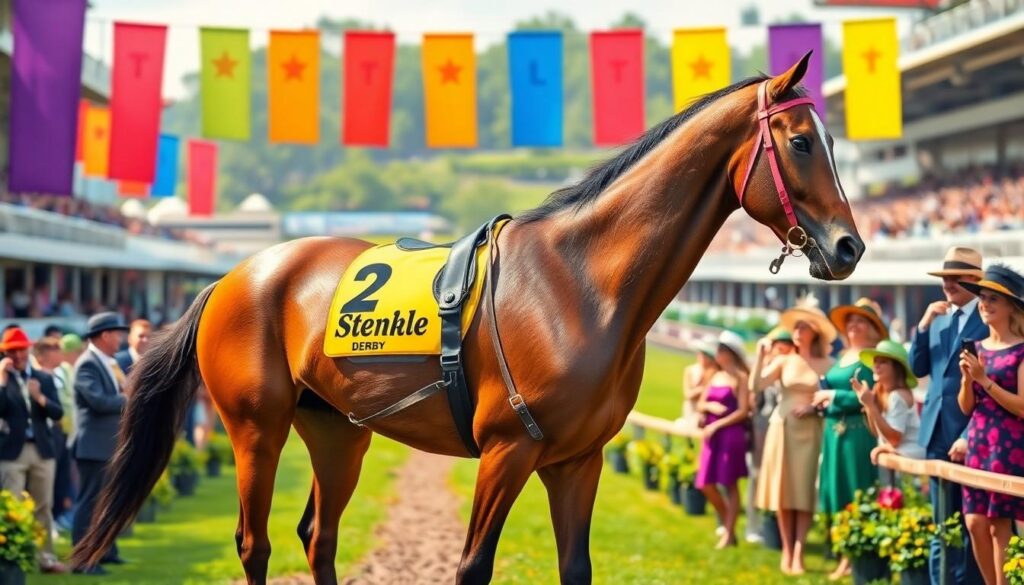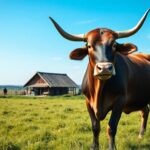The thundering hooves, the colorful silks, and those unforgettable names—Kentucky Derby horse names have become an art form all their own. From the bold and majestic to the quirky and clever, these names capture our imagination and become part of racing history.
We’ve all wondered how these magnificent thoroughbreds get their distinctive monikers. The tradition dates back to the Derby’s beginning in 1875, with names evolving from simple descriptors to the creative masterpieces we see today. Whether it’s honoring family legacies like “Secretariat” or embracing playful wordplay like “Nyquist,” these names aren’t just labels—they’re the first chapter in a horse’s legendary story.
The History Behind Kentucky Derby Horse Names
The tradition of naming Kentucky Derby horses began with the inaugural race in 1875, reflecting the evolving American culture throughout the decades. Early Derby contenders often carried straightforward names like Aristides (the first winner) and Ben Brush, focusing on simplicity rather than creativity. During the early 20th century, owners started incorporating their own stable names as prefixes, establishing breeding lineage recognition through consistent naming patterns.
Following Industry War II, a creative explosion in Derby horse naming emerged as racing grew in popularity and media coverage expanded. Names like Citation (1948 winner) and Secretariat (1973) became household terms that transcended the sport itself. The Jockey Club, established in 1894, eventually implemented formal naming rules to maintain order, limiting names to 18 characters and prohibiting offensive content or commercial references.
Modern Derby naming trends reflect our cultural shifts, with owners increasingly using wordplay, pop culture references, and personal stories to create memorable identities. Funny Cide (2003), California Chrome (2014), and Justify (2018) all showcase this contemporary approach to naming. Technology’s influence appears in names like American Pharoah (2015) – famous for its misspelling that couldn’t be corrected after registration.
Throughout Derby history, superstitions have influenced naming practices, with some owners avoiding certain letters or sounds believed to bring bad luck. Names honoring family members or featuring royal terminology (King, Queen, Prince) have remained consistently popular across generations. The evolution of these naming conventions provides a fascinating window into American cultural values and the deep emotional connection between owners and their prized thoroughbreds.
Naming Rules and Regulations for Derby Contenders

Behind every memorable Kentucky Derby horse name stands a comprehensive set of rules established to maintain order and respect in the sport. These regulations ensure that each thoroughbred’s name is distinctive while adhering to standards of clarity and good taste.
The Jockey Club’s Strict Guidelines
The Jockey Club serves as the ultimate authority for approving or disapproving all thoroughbred names in the United States. Their rigorous approval process requires owners to submit multiple name options, as many suggestions are rejected for violating various regulations. The registrar reserves the right to revoke previously issued names or demand changes if necessary. This meticulous oversight ensures that each Kentucky Derby contender carries a name that upholds the prestigious tradition of the sport while remaining distinct from other competitors.
Character and Language Restrictions
Character limitations form the foundation of naming rules, with all thoroughbred names restricted to a maximum of 18 characters including spaces. Names cannot consist entirely of initials such as “C.O.D.” or “F.O.B.” to avoid confusion during race calls. While numbers above 30 are permitted if spelled out, names cannot consist entirely of numerals. Terms like “filly,” “colt,” “stud,” “mare,” or “stallion” cannot appear at the end of a name, nor can numerical designations such as “2nd” or “3rd” regardless of spelling format. Using a living person’s name requires written permission filed with The Jockey Club, while names of deceased individuals need special approval based on written explanation. The rules strictly prohibit offensive, vulgar, or harassing names, with The Jockey Club maintaining authority to reject any name deemed in poor taste. Names that match or sound similar to another registered horse, especially those currently racing or winners of Grade 1 stakes races in the past 25 years, are automatically disqualified to prevent confusion among racing enthusiasts and officials.
10 Most Memorable Kentucky Derby Horse Names of All Time

The names of Kentucky Derby champions often become as legendary as their racing feats. These monikers capture the essence of their bearers and often tell stories of their own.
Secretariat, Seattle Slew, and Other Legendary Names
Secretariat stands tall among Derby legends, winning the 1973 Kentucky Derby while setting multiple track records and going on to claim the Triple Crown. His powerful name matched his dominant presence on the track, becoming synonymous with racing excellence. American Pharoah earned his place in history as the 2015 Derby winner and Triple Crown champion, with a uniquely misspelled name connected to his Egyptian expatriate owner Ahmed Zayat. Seattle Slew raced into Derby immortality in 1977, completing the Triple Crown with a name that combined geographic reference with distinctive character. Always Dreaming captured the 2017 Kentucky Derby, sporting a name that perfectly embodies the aspirational spirit of the Run for the Roses. Charismatic lived up to his name with a stunning long-shot victory in the 1999 Derby, demonstrating the intangible quality his name suggested. Bold Venture triumphed in the 1936 Derby and later sired two Derby winners, including Triple Crown champion Assault, making his assertive name particularly fitting for his racing legacy.
Unusual and Quirky Derby Winners
Panty Raid ran in the 2007 Kentucky Derby, earning distinction as one of the most humorous names in Derby history. Eighteencharacters participated in the 2002 Derby, cleverly using the maximum allowed character count as its actual name. That’s Whatshesaid showcased the creative humor that sometimes finds its way into the prestigious race, playing on a popular comedic phrase. Nosupeforyou competed in the 1998 Derby with a name that demonstrated the whimsical wordplay owners often employ. Bodacious Tatas raised eyebrows as a 1985 Derby participant with its bold and cheeky moniker. Soup and Sandwich earned recognition in 2021 not for racing prowess but for its quirky food-inspired name that stood out among more traditional competitors. Wolf Sandals joined the ranks of uniquely named Derby contenders with an unusual pairing of words that captured attention and sparked conversation among racing fans.
Common Themes in Kentucky Derby Horse Names

Behind every Kentucky Derby contender stands a name that often tells a story. These names typically follow recognizable patterns that reflect their owners’ values, interests, and observations.
Family Heritage and Lineage References
Kentucky Derby horse names frequently celebrate family heritage and ancestral connections. Owners often incorporate elements of their family history into their horses’ names, creating a personal bond with their thoroughbreds. For instance, Charlotte Colket Weber names her horses with references to her family’s Campbell’s Soup legacy, as demonstrated by her aptly named horse “Soupster.” These familial tributes serve as lasting homages that connect generations through the sport of kings. The practice of honoring ancestors requires careful navigation of Jockey Club regulations, which mandate written permission when naming a horse after any living person. Through these naming conventions, owners establish lasting connections between their family stories and racing legacies.
Pop Culture and Literary Inspirations
The cultural zeitgeist heavily influences Kentucky Derby horse naming trends, with owners drawing inspiration from books, movies, music, and historical events. Names like “Whirlaway” capture the essence of speed and power, evoking imagery of a horse leaving competitors in its wake. Literary references provide a rich source of creative names that resonate with audiences and create memorable identities for these magnificent athletes. Recent entries such as “Mystik Dan” and “Catching Freedom” showcase the poetic approach many owners take when christening their Derby hopefuls. These culturally-inspired names often enhance the mystique surrounding the horses and contribute to the pageantry of Derby day.
General Naming Guidelines
The Jockey Club maintains strict oversight of thoroughbred naming in the United States and Canada, ensuring each horse receives a distinctive and appropriate identifier. Their regulations prohibit using horse-related terminology such as “filly” or “colt” within names to prevent confusion in race calling and record-keeping. Names containing vulgar or obscene language are summarily rejected to maintain the dignity of the sport. Also, the organization enforces a 10-year waiting period before a retired thoroughbred’s name can be reused by another horse, preserving the unique identity of each champion. These comprehensive guidelines shape the creative process for owners while maintaining order within the racing community.
Physical Appearance and Unique Traits
A horse’s distinctive physical characteristics often inspire its Derby name, creating an immediate visual association for fans and commentators. Coat colors, unique markings, or notable physical traits frequently find their way into the official names registered with the Jockey Club. This naming approach creates an intuitive connection between the horse’s appearance and its identity on race day. Owners carefully observe their young thoroughbreds, noting distinctive behaviors or physical attributes that might suggest the perfect name to carry into Kentucky Derby history.
How Owners Choose the Perfect Kentucky Derby Horse Name

The process of naming a Kentucky Derby contender involves more than just picking words that sound nice. The Jockey Club, which serves as the official registry for all thoroughbreds in the U.S. and Canada, enforces strict guidelines that shape this creative try.
The Jockey Club’s Naming Guidelines
Names for Kentucky Derby hopefuls must adhere to exact rules that maintain the tradition and integrity of the sport. Uniqueness is paramount, as horse names cannot be reused until a thoroughbred has been out of racing or breeding for at least 10 years. Living persons’ names require written permission and explicit approval from The Jockey Club before they can be used. Certain horse-related terms such as “filly” or “colt” are prohibited in naming, as are any words with vulgar or obscene meanings. Many owners draw inspiration from their horse’s physical characteristics, particularly space markings or distinctive features that make the animal stand out.
The Strategic Marketing Behind Memorable Names
Brand recognition plays a crucial role in how owners select names for their Kentucky Derby contenders. Catchy and memorable names can significantly enhance a horse’s marketability, attracting more attention from fans, media, and potential sponsors. Cultural and historical references often find their way into horse names, making the equine athletes more relatable and interesting to the general public. Names that roll off the tongue and stick in memory tend to be more marketable, helping to build stronger fan bases and media presence throughout the racing season. This strategic approach to naming represents a savvy understanding of how public perception can impact a horse’s legacy beyond the track.
Personal Stories and Sentimental Connections
Owner preferences frequently drive the naming process, with many selecting names that reflect personal interests, family history, or important life events. A Derby horse might carry a name that honors a special place, commemorates a beloved person (with proper approval), or celebrates a meaningful occasion in the owner’s life. Breeders also influence naming decisions, sometimes choosing monikers that highlight the horse’s impressive lineage or distinctive physical traits. The naming process serves as a form of creative expression, allowing owners and breeders to add personal significance to their equine athletes. Kentucky Derby 2024 contenders such as “Sierra Leone,” “Mystik Dan,” and “Catching Freedom” each carry names that likely hold special meaning to those who selected them, contributing to the rich tapestry of stories behind these magnificent athletes.
The Most Successful Naming Patterns in Derby History

Meaningful and Descriptive Names
Meaningful and descriptive names have consistently performed well in Kentucky Derby history. These names typically reflect the horse’s appearance, pedigree, or personality traits, creating an immediate connection with fans and commentators. American Pharoah, the 2015 Derby and Triple Crown winner, exemplifies this pattern perfectly—his name reflects owner Ahmed Zayat’s Egyptian heritage, creating a memorable identity that matched the horse’s impressive legacy. Names that capture a horse’s essence often resonate more deeply with audiences and become part of racing lore.
Historical and Traditional Names
Historical and traditional naming patterns have established a strong presence in Derby victories throughout the decades. Bold Venture, who won the 1936 Kentucky Derby, initiated a successful naming tradition with the “Bold” prefix that would later appear in many champions. These historically inspired names tap into racing’s rich heritage and often carry a sense of gravitas that stands the test of time. Racing enthusiasts frequently associate traditional naming conventions with quality bloodlines and established racing programs.
Inspirational and Aspirational Names
Inspirational and aspirational names have shown remarkable success at Churchill Downs over the years. Names like Always Dreaming (2017 winner) and others that convey ambition, determination, and positive qualities frequently find their way to the winner’s circle. These uplifting names often symbolize the hopes and dreams of owners and trainers who’ve invested years of effort into their thoroughbreds. The psychological impact of an inspirational name can even extend to how fans and bettors perceive a horse’s chances on race day.
Character-Limited Creativity
Derby winners often feature names that maximize creativity within the Jockey Club’s strict 18-character limit. This constraint has paradoxically inspired some of racing’s most inventive and memorable names. Successful owners understand how to create concise yet evocative names that stand out during race calls and in headlines. The character limitation forces a discipline in naming that often results in more impactful, punchy names that resonate with racing fans and casual observers alike.
Names That Honor Legacies
Names honoring family legacies or important racing connections have frequently worn the garland of roses. These names create continuity in the sport and acknowledge the generational nature of thoroughbred racing. Charismatic, the 1999 Derby winner, captured an intangible quality that made him stand out as a long-shot winner. When horses carry names that honor important influences or predecessors, they often seem to race with an additional sense of purpose, connecting past and present in racing’s ongoing story.
Rejected Kentucky Derby Horse Names That Never Made It to the Track

For every Kentucky Derby contender with an approved name, countless submissions never make it past The Jockey Club’s screening process. These rejected names often reveal the creative—and sometimes inappropriate—boundaries that owners test when naming their thoroughbreds. Let’s explore some notable Kentucky Derby horse names that were denied approval and never made it to the track.
Names with Double Meanings or Inappropriate Connotations
The Jockey Club frequently rejects names with suggestive undertones or inappropriate wordplay:
- NEIL ANBLOWMEE was swiftly denied due to its clearly suggestive nature when pronounced aloud.
- OIL BEEF HOOKED didn’t make the cut, likely because when spoken quickly, it sounds like an offensive phrase rather than a reference to butchery.
- ARFUR FOULKESAYCKE appears innocent at first peek but was rejected because its pronunciation mimics a crude expression.
Names That May Be Confusing or Unacceptable
Some submitted names are rejected for being potentially misleading or inappropriate:
- BEN TIMOVER might have been intended to honor someone named Ben, but The Jockey Club identified the obvious double meaning.
- ANITA HANJAAB was supposedly meant to commemorate an Indian family’s daughter, yet its phonetic resemblance to a vulgar phrase ensured its rejection.
Other Creative Attempts That Failed Approval
The Jockey Club’s rigorous screening process catches many creative but problematic submissions:
- Futureglue didn’t stick with the approval committee for reasons that remain adhesive to The Jockey Club’s internal deliberations.
- Studs McGhee galloped straight into rejection due to its suggestive connotations that didn’t meet the standards of propriety.
- Herbert Hoofer has appeared on multiple rejection lists, even though its seemingly innocent play on a presidential name.
- Hung Like A Me was predictably denied approval because of its blatantly inappropriate sexual reference.
- MeRadish didn’t root with the naming authorities, joining the long list of creative attempts that failed to meet naming standards.
- Man O’ War & Peace attempted to cleverly reference both a famous racehorse and a literary masterpiece but was rejected, possibly for its complexity or similarity to the legendary horse’s name.
- With Your Wife crossed the finish line of acceptability before ever reaching the starting gate, along with other boundary-pushing submissions like Assistant to the….
The Jockey Club’s rejection of these names highlights their commitment to maintaining the dignity and integrity of thoroughbred racing. Their guidelines protect against obscene, misleading, or confusing names that might diminish the prestigious reputation of events like the Kentucky Derby. While we’ll never see these rejected names on racing forms or hear them called by track announcers, they offer an amusing glimpse into the creative—and sometimes inappropriate—minds of horse owners.
How to Predict a Winner Based on Its Name

While the idea of predicting Kentucky Derby winners based solely on their names might seem intriguing, the reality is that this approach lacks scientific validity. Let’s explore why name-based predictions fall short and what factors actually determine Derby success:
The Myth of Name-Based Predictions
Even though the allure of picking winners based on powerful or catchy names, no empirical evidence supports a correlation between a horse’s name and its racing performance. Names like “American Pharoah,” “Charismatic,” and “Bold Venture” achieved fame because of the horses’ abilities on the track, not because their names somehow predetermined success. Racing outcomes depend on a complex interplay of physical attributes, training quality, and race day conditions rather than creative nomenclature.
What Experts Actually Consider
Professional handicappers and racing analysts focus on substantive factors when making their Derby predictions. For the 2025 Kentucky Derby, experts like Kevin Kilroy and Kaitlin Free have identified top contenders such as “Journalism,” “Sovereignty,” and “Sandman” based on performance metrics rather than how their names sound. These specialists evaluate a thoroughbred’s racing history, breeding lineage, training progression, and recent form when assessing potential winners.
Naming Rules vs. Racing Success
The Jockey Club enforces strict naming regulations for thoroughbreds, but these rules have no bearing on a horse’s speed or stamina. Names cannot include terms like “filly,” “colt,” “stud,” “mare,” or “stallion” at the end, and must be unique within the registry. These guidelines exist to maintain order and tradition in the sport but don’t influence race performance in any meaningful way.
Better Prediction Strategies
Instead of relying on names, we recommend focusing on data-driven approaches that consider tangible factors affecting race outcomes. Track the horse’s previous race performances, particularly in Derby prep races that test similar distances and conditions. Pay attention to trainer and jockey statistics, as these human elements significantly impact how well a horse performs on race day. Consider the thoroughbred’s pedigree, especially about stamina and dirt track performance, which are crucial for the demanding 1¼-mile Kentucky Derby distance.
Conclusion
Kentucky Derby horse names represent far more than mere labels—they’re powerful storytelling devices that capture the essence of these magnificent athletes. From the simple names of the 1800s to today’s creative masterpieces they reflect changing American culture while adhering to The Jockey Club’s stringent guidelines.
These names honor family legacies embrace pop culture and showcase clever wordplay. They become part of racing lore alongside the achievements of the horses who carry them. Whether it’s the legendary Secretariat or the uniquely spelled American Pharoah these names become inseparable from Derby history.
While a horse’s name can’t predict its performance on the track it certainly adds to the magic and mystique that makes the Kentucky Derby America’s most beloved horse race. The tradition of thoughtful naming continues with each new generation of thoroughbreds improving our connection to this timeless sport.
Frequently Asked Questions
How are Kentucky Derby horse names regulated?
The Jockey Club governs all thoroughbred naming in the United States, enforcing strict guidelines that limit names to 18 characters and prohibit offensive content, duplicate names, or those too similar to existing horses. Owners must submit multiple options as many suggestions are rejected. These regulations ensure each horse’s name is distinctive and maintains the prestigious tradition of the sport.
Do Kentucky Derby horse names follow specific trends?
Yes, Kentucky Derby horse names reflect evolving trends throughout history. Early names were straightforward (like Aristides), while modern names incorporate wordplay, pop culture references, and personal stories. Common themes include family tributes, royal terminology, physical characteristics, and pop culture references. Some owners avoid certain letters due to superstitions about luck.
Can a horse’s name predict its Derby performance?
No, there is no empirical evidence linking a horse’s name to its racing performance. Success is determined by physical attributes, training quality, and race day conditions—not naming conventions. Professional handicappers focus on racing history, breeding lineage, and recent form when making predictions. For accurate Derby predictions, rely on data-driven approaches rather than name analysis.
What are some of the most memorable Kentucky Derby horse names?
Legendary names include Secretariat (1973 winner synonymous with racing excellence), American Pharoah (2015 winner with a uniquely misspelled name), Seattle Slew, Always Dreaming, and Charismatic. Quirky standouts like Panty Raid, Eighteencharacters, and Soup and Sandwich demonstrate the creativity behind naming Derby contenders while contributing to the race’s rich historical tapestry.
Why do owners put so much thought into horse names?
Names represent the beginning of a horse’s legendary story and reflect owners’ values, interests, and family heritage. A well-chosen name enhances brand recognition and marketability while creating emotional connections. Many names honor family legacies or significant life events. The strategic approach to naming adds personal significance while contributing to the rich tapestry of stories behind these magnificent athletes.
What types of names are rejected by The Jockey Club?
The Jockey Club rejects names with suggestive undertones, double meanings, or potential confusion. Examples include names with inappropriate sexual references, obscenities, or those that could diminish the sport’s prestigious reputation. Names exceeding 18 characters, those too similar to existing horses, or names of prominent racing figures without permission are also denied approval.
What naming patterns have been successful in Derby history?
Successful patterns include meaningful descriptive names that connect to the horse’s essence (American Pharoah), historical/traditional names that tap into racing heritage (Bold Venture), and inspirational/aspirational names that symbolize hope (Always Dreaming). Names honoring legacies create continuity in the sport, while creative approaches within the character limit often result in memorable, impactful names.
How has Kentucky Derby horse naming evolved over time?
Kentucky Derby horse naming evolved from simple descriptors in the 1870s (like Aristides and Ben Brush) to increasingly creative expressions. Post-World War II saw an explosion in creative naming as the sport grew in popularity. Modern names reflect contemporary culture while adhering to The Jockey Club’s formalized rules, showcasing the changing American values and the deepening emotional connection between owners and their thoroughbreds.







